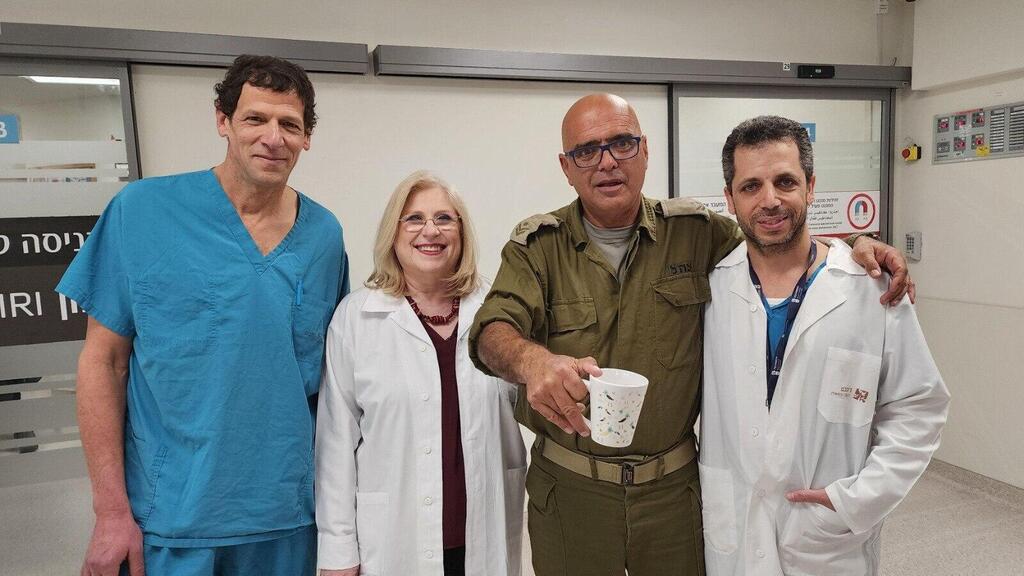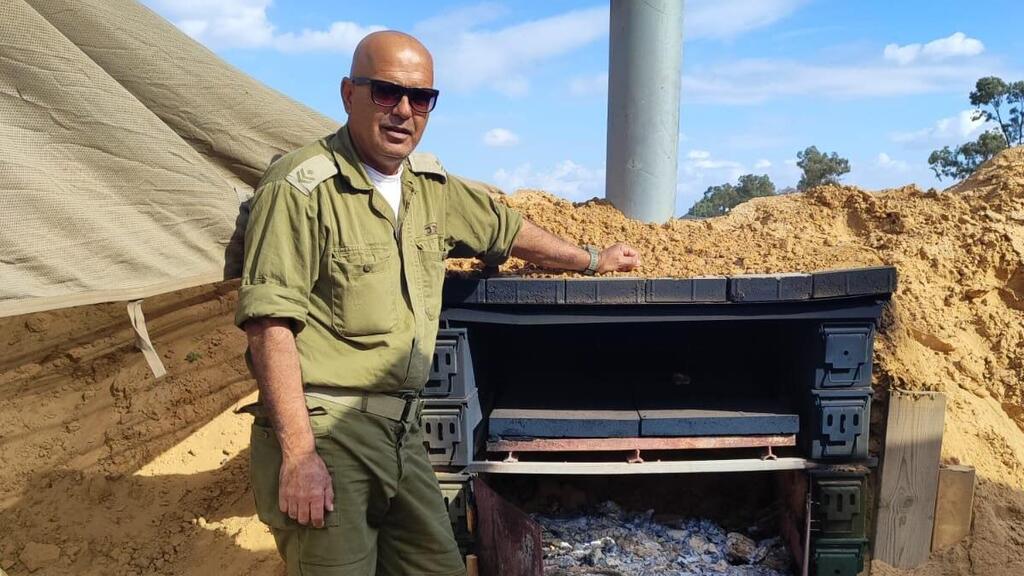Getting your Trinity Audio player ready...
The four months of reserve duty Motti Ben-Lulu spent on the Gaza border were a prelude to his victory in a battle he had been fighting for over 30 years against a severe neurological condition.
Read more:
Ben-Lulu, 57, an Israel Electric Corporation worker from Kibbutz Mishmarot, began experiencing symptoms of tremors in his early twenties. The disease made his daily tasks challenging: simple activities like eating with a fork, drinking from a cup, and caring for his children when they were toddlers became daunting challenges.
Nevertheless, he never allowed the illness to stop him. This determination extended to his military service: since October, he has served in the reserves as a platoon commander in an artillery unit on the Gaza border—until he received a call to report for a completely different front: brain surgery at Rambam Hospital, which completely changed his life in a matter of hours.
"I heard about the procedure I underwent, FUS, over ten years ago, when it was still in its infancy at Rambam," Ben-Lulu recounts. "My wife searched for solutions to my condition on Google and found information about this procedure. I kept it in mind but put it aside. Only a few months ago did I start to inquire with the hospital if I was suitable for the treatment. Meanwhile, the war broke out, and I was called up for reserve duty."
"We were in the field for four months until the call came from Rambam," Ben-Lulu says. "I came straight from the frontlines, from a life-threatening situation to a life-changing one. No one really prepared me for leaving the treatment after a few hours like a new, different person. To this day, I check every morning that I'm not dreaming."
First tremor syndrome is twenty times more common than Parkinson's disease. Patients typically suffer from hand tremors that can occur during simple tasks like writing and eating. The condition may worsen over time. "The treatment is performed using MRI-guided focused ultrasound (FUS)," explains Dr. Ilana Schlesinger, director of the Movement Disorders and Parkinson's Institute and a senior neurologist in the neurology department at Rambam. "The treatment utilizes high-energy ultrasound waves to burn a tiny part of the brain, which serves as a relay station for transmitting electrical signals. The procedure stops the tremor in one hand, and after a few months, another treatment can be done on the other hand."
The technology, developed by the Israeli company Insightec, replaces the need for invasive surgery. "It's a highly targeted procedure, and we need to be very precise to assist the patient," says Dr. Alon Sinai, a neurophysiologist at Rambam who oversees FUS treatments. "During the treatment, we assess the patient's condition in real-time to achieve the best results."
According to Dr. Lior Lev-Tov, head of the Functional Neurosurgery department at Rambam, "The technology is effective in other conditions beyond essential tremor, which we routinely treat within the health basket. Just a few weeks ago, we successfully treated symptoms of slowness, stiffness, and tremors in a Parkinson's patient for the first time in Israel (a treatment not yet included in the health basket). She was severely impaired functionally, despite optimal medical therapy, and we managed to get her back on her feet and change her life entirely. The new generation of FUS technology, for which Rambam was chosen to lead globally, opens up possibilities for addressing neurological functional problems that had no solution in the past."
Ben-Lulu, who is now adjusting to his new life, emphasizes that it's nothing short of a miracle: "I'm doing things I never thought I'd be able to do—eating spaghetti, hammering a nail, holding a steady hand. I'm a completely new person. In the army, they always knew I drank half a cup of coffee, otherwise, it spilled. Now the era of the full cup has arrived."




